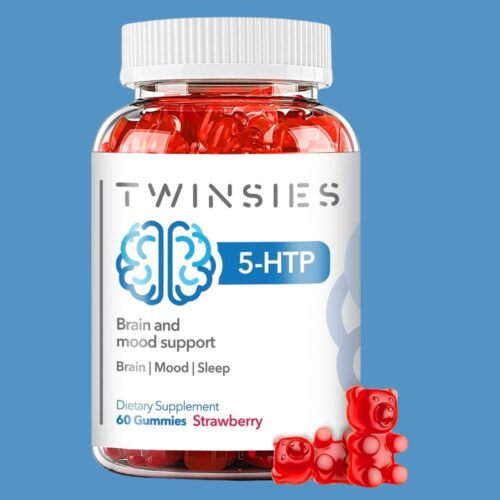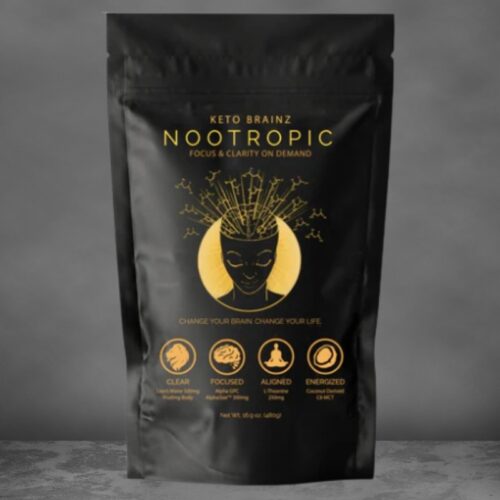Discover Neuralli MP, a clinically researched probiotic medical food designed to enhance the quality of life for individuals with Parkinson’s disease. Formulated with the powerful psychobiotic strain L. plantarum PS128, Neuralli MP supports gut health, alleviates gastrointestinal symptoms, and may improve motor function. This unique probiotic not only aids in managing PD symptoms but also promotes overall well-being. With its ability to balance the gut-brain axis, Neuralli MP offers a holistic approach to Parkinson's management. Choose Neuralli MP for a trusted, effective solution to support your health journey.
Description
Parkinson’s disease (PD) is the second most common neurodegenerative disorder worldwide, affecting more than 10 million people across the globe. It is often thought of as a movement disorder — with tremors, stiffness, and slowed mobility — but its impact goes far beyond motor control. Patients frequently struggle with fatigue, constipation, sleep disturbances, anxiety, and depression, all of which dramatically affect quality of life. While current medical treatments, such as levodopa and dopamine agonists, can temporarily ease symptoms, they do not slow or reverse disease progression. For families and caregivers, this reality underscores a frustrating truth: despite decades of research, Parkinson’s remains incurable, with significant unmet needs in supportive care.
Against this backdrop, new lines of research are exploring the gut-brain connection — a scientific frontier that is reshaping how we think about Parkinson’s. Over the past two decades, evidence has accumulated showing that changes in gut health, inflammation, and the composition of intestinal bacteria may be closely linked to the development and progression of neurodegenerative conditions. This perspective has led to a fascinating hypothesis: what happens in the gut may directly influence the brain. For Parkinson’s patients, this is particularly intriguing because gastrointestinal symptoms such as constipation often appear years before motor symptoms. This timing suggests the gut may play a role early in the disease process.
This is where probiotics — beneficial bacteria that can reshape the gut microbiome — come into the conversation. More specifically, psychobiotics (a subset of probiotics with potential mental health and neurological benefits) have entered the research spotlight. Bened Life, a company focused on probiotic science, highlights one such candidate: Lactobacillus plantarum PS128. Their product, marketed under the name Neuralli MP, is promoted as the first psychobiotic probiotic designed for neurological conditions, including Parkinson’s disease. The company cites both preclinical and early clinical findings suggesting that PS128 may influence dopamine pathways, reduce neuroinflammation, and improve non-motor symptoms like anxiety and sleep disturbance.
But why should this matter to patients, caregivers, and clinicians? Because it represents a shift from simply treating symptoms with pharmaceuticals toward addressing broader biological networks that might influence disease course. While it is far too early to call probiotics a cure, the idea that a dietary supplement could complement existing therapies in a safe, accessible way is compelling. As science progresses, patients are increasingly interested in holistic, multi-system approaches — and probiotics, being widely available and relatively safe, occupy an appealing middle ground between lifestyle changes and conventional medicine.
In this study post, we’ll critically explore the connection between Parkinson’s and the microbiome, unpack the scientific evidence for probiotics like PS128, and evaluate what Bened Life contributes to this evolving conversation. By the end, you’ll have a clear picture of what is known, what remains speculative, and how patients and caregivers might weigh these insights in practical terms.
Parkinson’s Disease — Causes, Symptoms, and Current Treatments
Understanding the Disease Mechanism
Parkinson’s disease is a progressive neurodegenerative disorder primarily marked by the loss of dopamine-producing neurons in the substantia nigra — a small but vital region of the brain that controls movement. When these neurons deteriorate, dopamine levels plummet, disrupting communication between the brain’s motor circuits. This deficit leads to hallmark motor symptoms like tremor, rigidity, bradykinesia (slowness of movement), and postural instability.
A second layer of pathology involves the abnormal accumulation of a protein called alpha-synuclein, which forms clumps known as Lewy bodies inside nerve cells. These aggregates are toxic to neurons and contribute to widespread brain dysfunction. Importantly, research suggests that alpha-synuclein pathology may not start in the brain at all — but in the gut — before spreading upward via the vagus nerve. This gut-first theory of Parkinson’s provides a striking rationale for why intestinal health and the microbiome have become central to new avenues of research.
Motor and Non-Motor Symptoms
While motor symptoms are the most recognizable, non-motor symptoms often precede and overshadow them in terms of quality-of-life impact. These include:
- Gastrointestinal issues: chronic constipation, bloating, slow gastric emptying.
- Neuropsychiatric symptoms: anxiety, depression, apathy, sleep disturbances.
- Cognitive changes: memory problems and executive function decline.
- Autonomic dysfunction: blood pressure instability, urinary difficulties, sweating abnormalities.
For many patients, non-motor symptoms are just as disabling as tremors or stiffness, underscoring the complexity of Parkinson’s as a whole-body disease.
Current Standard of Care
Treatment for Parkinson’s disease remains largely symptomatic. The cornerstone is levodopa, a dopamine precursor that temporarily restores dopamine levels in the brain. While highly effective in the early years, long-term use often leads to fluctuations in symptom control (“on-off” phenomena) and dyskinesias (involuntary movements). Other drugs include dopamine agonists, MAO-B inhibitors, and COMT inhibitors, all of which attempt to modulate dopamine levels or enhance levodopa’s effect.
For advanced cases, surgical interventions like deep brain stimulation (DBS) can improve motor symptoms by targeting specific brain circuits. Physical therapy, occupational therapy, and speech therapy are also integral parts of comprehensive care.
However, none of these approaches halt disease progression. They manage symptoms, but the underlying neurodegeneration continues. This reality leaves patients and caregivers searching for adjunct strategies — from dietary modifications and exercise to complementary interventions like probiotics — that might address root causes or systemic contributors.
Why This Context Matters for Probiotics
By laying out the mechanisms and limitations of current care, it becomes clear why the microbiome has sparked interest. If Parkinson’s pathology may begin in the gut, and if gut dysfunction plays a role in both motor and non-motor symptoms, then interventions like probiotics could theoretically modify disease pathways. Bened Life positions its psychobiotic PS128 as a candidate to fill this gap: not replacing dopamine therapy, but potentially enhancing overall well-being by acting on the gut-brain axis.
The Gut-Brain Axis & Microbiome in Parkinson’s
The Gut-Brain Axis Explained
The gut-brain axis refers to the complex, bidirectional communication network linking the gastrointestinal tract and the central nervous system. This network includes neural pathways (such as the vagus nerve), hormonal signaling, and immune system interactions. The microbiome — the trillions of bacteria, fungi, and other microbes in the gut — plays a crucial role by producing metabolites that can influence brain function, mood, and inflammation.
In Parkinson’s research, the gut-brain axis is of particular interest because non-motor symptoms like constipation, bloating, and nausea often appear long before tremors or rigidity. This suggests that gut dysfunction isn’t just a side effect of PD but could be part of its earliest disease process.
The Microbiome’s Role in Parkinson’s
Several studies have found that people with Parkinson’s disease have distinct gut microbiome profiles compared to healthy individuals. Key findings include:
- Reduced microbial diversity — fewer types of “good bacteria” that support digestion and immune balance.
- Lower levels of short-chain fatty acid (SCFA) producers such as Faecalibacterium prausnitzii, which normally help maintain the integrity of the gut lining and reduce inflammation.
- Higher abundance of pro-inflammatory microbes that may worsen systemic inflammation and oxidative stress.
These microbial imbalances may contribute to a “leaky gut,” allowing inflammatory molecules and toxins to cross into the bloodstream, where they can influence the brain. In animal models, gut microbiome changes have been shown to accelerate alpha-synuclein aggregation — the very protein clumps central to PD pathology.
Constipation as a Red Flag
Constipation is one of the most common early symptoms of Parkinson’s disease, often appearing 10–20 years before diagnosis. This is more than an inconvenience; it may represent early gut-brain dysfunction. Researchers hypothesize that misfolded alpha-synuclein may originate in the enteric nervous system (the “second brain” in the gut) and then spread to the brain through the vagus nerve. If true, this would mean the gut is not only a site of symptoms but potentially the starting point of Parkinson’s itself.
Why This Matters for Probiotics
If the gut microbiome plays a role in initiating or accelerating Parkinson’s pathology, then interventions that reshape the gut environment become highly attractive. Probiotics, prebiotics, and dietary changes could theoretically:
- Increase beneficial bacteria that produce SCFAs.
- Reduce gut inflammation and restore intestinal barrier integrity.
- Influence neurotransmitter production (like serotonin and dopamine precursors).
- Modulate immune activity that connects gut and brain health.
Bened Life’s focus on Lactobacillus plantarum PS128 (marketed as Neuralli MP) fits directly into this framework. Their positioning is that psychobiotics like PS128 may help stabilize dopamine pathways, improve sleep and mood, and reduce neuroinflammation — all via gut-brain mechanisms.
The Emerging Paradigm
The gut-brain axis represents a paradigm shift in Parkinson’s disease: from seeing it solely as a brain disorder to viewing it as a systemic disease with gastrointestinal roots. While the field is still in its infancy, the idea that altering gut bacteria could influence neurodegeneration has energized both researchers and companies like Bened Life. Patients, too, are increasingly aware of this connection, asking their doctors not just about medication but about diet, probiotics, and lifestyle approaches that might complement standard care.
Probiotics & Psychobiotics — Mechanisms & Candidate Strains
What Are Probiotics?
Probiotics are live microorganisms that, when consumed in adequate amounts, confer a health benefit on the host. Most commonly, they belong to genera such as Lactobacillus, Bifidobacterium, and Saccharomyces. Traditionally, probiotics have been studied for digestive health — improving constipation, diarrhea, or irritable bowel syndrome. However, growing research suggests they also influence the immune system, metabolism, and even neurological function.
From Probiotics to Psychobiotics
Psychobiotics are a newer concept: a subset of probiotics with potential mental health and neurological benefits. Unlike general probiotics that primarily support gut function, psychobiotics are believed to directly influence the gut-brain axis, with effects on mood, cognition, and neurochemistry.
Mechanisms proposed for psychobiotics include:
- Neurotransmitter modulation: Certain strains can produce or influence neurotransmitters like serotonin, gamma-aminobutyric acid (GABA), and dopamine precursors.
- Immune system regulation: By reducing gut inflammation and lowering systemic inflammatory markers, psychobiotics may protect the brain from neuroinflammation.
- Stress hormone balance: Some strains may modulate the hypothalamic-pituitary-adrenal (HPA) axis, lowering stress-induced cortisol spikes.
- Improved intestinal barrier function: Strengthening the gut lining helps prevent “leaky gut,” reducing the passage of harmful molecules that can affect the brain.
Candidate Strains for Neurological Health
Not all probiotics are created equal. Research has shown strain-specific effects — meaning one type of Lactobacillus may improve anxiety while another has no measurable neurological effect. For Parkinson’s disease, the most studied candidates include:
- Lactobacillus plantarum PS128: The centerpiece of Bened Life’s product Neuralli MP. Early studies suggest it can enhance dopamine signaling and reduce motor deficits in animal models, as well as improve mood and sleep in humans.
- Bifidobacterium breve: Linked to reductions in neuroinflammation and improved memory in preclinical models.
- Lactobacillus rhamnosus JB-1: Known for influencing GABA receptors and reducing anxiety-like behavior in mice.
- Multi-strain blends: Some trials in PD patients show that probiotic mixtures can improve constipation, one of the most burdensome non-motor symptoms.
Why Strain Matters
One of the biggest misconceptions is that any probiotic will help with neurological conditions. In reality, the benefits are highly specific: a strain that helps irritable bowel syndrome may not influence dopamine or anxiety. Bened Life emphasizes this in their promotion of PS128, branding it as a psychobiotic specifically targeted for neurological pathways, not just digestive support.
How Probiotics Could Influence Parkinson’s Symptoms
While research is still in early stages, here are the pathways by which psychobiotics like PS128 might impact PD:
- Motor symptoms: Enhancing dopamine synthesis or protecting dopaminergic neurons.
- Non-motor symptoms: Reducing constipation, lowering anxiety, and improving sleep quality.
- Neuroinflammation: Modulating immune responses that contribute to neuronal damage.
- Overall resilience: Supporting a balanced microbiome that may slow systemic stressors linked to PD progression.
The Promise and the Caveats
The psychobiotic concept is promising because it ties together gut health, immune regulation, and brain chemistry. However, the evidence base is still small. Most findings come from animal models or small pilot studies. For patients and clinicians, this means probiotics may be viewed as a complementary strategy — potentially beneficial, generally safe, but not yet a replacement for established medical therapies.
Evidence (Preclinical & Clinical) for Probiotics in Parkinson’s
Preclinical Evidence: What Animal Studies Show
Most of the foundational work on probiotics and Parkinson’s has been done in animal models, where researchers can directly test how probiotic strains affect brain chemistry and motor behavior. Some key findings include:
- Dopamine pathway modulation:Lactobacillus plantarum PS128 has been shown in mice to enhance dopamine and serotonin levels in the brain. These neurotransmitters are directly tied to movement, mood, and sleep regulation — all critical in Parkinson’s.
- Neuroprotection: Animal studies suggest PS128 can protect dopaminergic neurons from damage, reducing the loss of brain cells in Parkinson’s-like conditions.
- Motor improvements: Rodent models treated with PS128 showed reduced tremor-like movements and better motor coordination compared to controls.
- Immune balance: Some probiotic strains decreased neuroinflammation, lowering levels of inflammatory cytokines that accelerate neuronal death.
While promising, animal studies have limits — they can’t perfectly mimic human Parkinson’s disease, and many interventions that work in rodents fail in people. Still, they provide a biological rationale for testing probiotics in clinical settings.
Human Evidence: Early Clinical Trials
Human research is still in its infancy, but a few studies have provided encouraging signals:
- Constipation Relief: Multiple small clinical trials have shown that probiotic mixtures improve bowel function in Parkinson’s patients. For example, randomized controlled studies using Lactobacillus and Bifidobacterium blends demonstrated significant improvements in stool frequency and consistency, addressing one of PD’s most burdensome non-motor symptoms.
- Mood and Sleep Benefits: Early pilot studies of PS128 in humans (not limited to PD patients) found improvements in sleep quality, reductions in anxiety, and enhanced emotional well-being. These findings are relevant since depression and insomnia are common in PD.
- Motor Function Hints: A 2021 open-label study explored PS128 in Parkinson’s patients and reported mild improvements in motor function and overall quality of life. While the trial was small and uncontrolled, it pointed toward possible clinical benefit beyond gut health.
What’s Missing in the Evidence
Despite these encouraging results, there are still major gaps:
- Few large randomized controlled trials (RCTs): The gold standard for medical evidence is still lacking. Most studies have small sample sizes, short durations, or open-label designs.
- Limited diversity of strains tested: Most research focuses on multi-strain blends for constipation or single strains like PS128. Other potentially useful strains remain underexplored.
- Unclear mechanisms in humans: While animal data suggest neurotransmitter changes, proving this in human Parkinson’s patients is difficult without invasive testing.
The Role of Bened Life’s Neuralli MP
Bened Life promotes Neuralli MP, their PS128-based psychobiotic, as the first probiotic tailored for neurological conditions. Their messaging leans on the preclinical data showing dopamine modulation and the early human studies hinting at quality-of-life improvements. For patients and caregivers, this is appealing — especially since probiotics are generally safe and non-pharmaceutical.
However, it’s important to recognize that these products are dietary supplements, not FDA-approved drugs. While early evidence is exciting, much larger clinical trials are needed before doctors can confidently recommend psychobiotics as a standard part of Parkinson’s care.
The Balanced View
The current evidence base supports a cautious optimism:
- Promising signals in gut health, mood, and possibly motor symptoms.
- Minimal risks when probiotics are taken under medical supervision.
- Not a substitute for established Parkinson’s therapies.
- Clear need for larger, independent studies to confirm efficacy.
For now, probiotics may be best viewed as a complementary strategy — an addition to, not a replacement for, standard care. Patients should always discuss probiotic use with their healthcare providers to ensure safe integration with other treatments.
Diet, Lifestyle & Complementary Strategies
The Role of Diet in Parkinson’s and Gut Health
Diet is one of the most powerful shapers of the microbiome, and for Parkinson’s patients, nutrition can influence not only digestion but also systemic inflammation and brain health. Research suggests that:
- Western-style diets (high in processed foods, sugars, and saturated fats) promote inflammation and reduce microbial diversity, potentially worsening gut and neurological health.
- Mediterranean-style diets, rich in fruits, vegetables, whole grains, legumes, olive oil, and fish, support a more balanced microbiome and are linked to lower rates of neurodegenerative diseases.
- High-fiber foods (vegetables, beans, oats, whole grains) encourage the growth of bacteria that produce short-chain fatty acids (SCFAs), which protect gut integrity and reduce inflammation.
- Fermented foods such as yogurt, kefir, sauerkraut, and kimchi naturally introduce probiotics into the gut, offering a dietary path to microbiome balance.
For Parkinson’s patients, paying attention to diet may help improve digestion, energy levels, and possibly even symptom management.
Lifestyle Strategies that Support the Gut-Brain Axis
Beyond diet, several lifestyle factors can influence both gut and neurological health:
- Regular Exercise: Consistent physical activity has been shown to enhance microbial diversity, reduce inflammation, and improve motor and non-motor symptoms in PD. Even light exercises such as walking, tai chi, or yoga can be beneficial.
- Stress Management: Chronic stress negatively impacts the microbiome and the brain. Practices like meditation, deep breathing, and mindfulness can reduce cortisol levels, indirectly supporting gut health.
- Sleep Hygiene: Poor sleep alters gut microbial balance and worsens PD symptoms. Establishing a regular sleep routine and limiting late-night screen time can promote more restorative rest.
- Hydration: Adequate fluid intake is essential for bowel health and can help reduce constipation, a major issue in Parkinson’s.
Complementary Approaches Beyond Probiotics
While probiotics like Lactobacillus plantarum PS128 may provide targeted support, other complementary strategies deserve attention:
- Prebiotics: Non-digestible fibers (like inulin, chicory root, and resistant starches) that feed beneficial bacteria, potentially enhancing probiotic effectiveness.
- Synbiotics: Combinations of probiotics and prebiotics designed to work together for greater microbiome support.
- Polyphenols: Plant compounds found in berries, green tea, cocoa, and red wine that can influence microbial activity and reduce oxidative stress.
- Omega-3 fatty acids: Anti-inflammatory nutrients from fish oil or flaxseed that may support both brain and gut health.
The Bigger Picture
Probiotics should not be viewed as a “magic bullet.” Instead, they are one part of a holistic strategy that combines diet, lifestyle, exercise, stress management, and medical therapies. Patients who embrace a multi-faceted approach — and who do so under medical guidance — may experience improvements not only in motor symptoms but also in energy, digestion, mood, and quality of life.
Where Bened Life Fits In
Bened Life’s Neuralli MP sits at the intersection of these strategies. It is positioned not as a replacement for healthy living or medical therapy, but as an adjunct tool within a broader lifestyle plan. For patients already eating a balanced diet, exercising, and following medical treatment, PS128 may provide an added layer of microbiome support with potential neurological benefits.
Bened Life’s Position & Product (Neuralli MP / PS128)
Who is Bened Life?
Bened Life is a company dedicated to advancing psychobiotic probiotics — probiotics formulated not just for gut health, but for mental and neurological well-being. Their flagship product, Neuralli MP, is built around the strain Lactobacillus plantarum PS128, which they brand as the first psychobiotic specifically positioned for individuals with neurological conditions like Parkinson’s disease, autism, and mood disorders.
The company’s central claim is that PS128 can influence the gut-brain axis to promote more balanced dopamine signaling, reduce neuroinflammation, and improve non-motor symptoms such as sleep quality, mood, and anxiety. This represents a bold move to go beyond the typical digestive claims of probiotics and instead target one of the most complex areas of human health: the brain.
The Science They Highlight
Bened Life grounds their product claims in a mix of preclinical studies (animal models) and early-stage human trials. They emphasize:
- Dopamine modulation: Animal studies suggest PS128 can boost dopamine and serotonin levels in the brain.
- Motor benefits: Preclinical models showed improvements in tremor-like symptoms and movement control.
- Mood and sleep improvements: Pilot human studies found reduced anxiety and better sleep, which are highly relevant for Parkinson’s patients struggling with these symptoms.
- Gut support: Like other probiotics, PS128 may help regulate the microbiome and reduce constipation.
Their product messaging carefully positions PS128 as evidence-informed while stopping short of claiming it as a treatment or cure, reflecting the supplement industry’s regulatory boundaries.
Product Positioning and Differentiation
What sets Bened Life apart from typical probiotic brands is specificity. Most probiotic supplements are marketed broadly — “good for digestion” or “supports immunity.” Bened Life, however, narrows its focus to neurological health, presenting PS128 as a psychobiotic uniquely suited for conditions where dopamine, mood, and motor function are disrupted.
They also emphasize quality control and clinical intent: Neuralli MP is described as having rigorous strain identification, consistent dosing, and formulations designed to reach the gut intact. This kind of precision branding is critical in a market flooded with generic probiotic blends.
Practical Considerations for Patients
For individuals with Parkinson’s disease, Bened Life’s Neuralli MP is positioned as a complementary option. Patients may find it attractive because:
- It is non-invasive compared to medications or surgeries.
- It has a low risk profile, as probiotics are generally safe when used under medical guidance.
- It addresses both motor and non-motor symptoms, acknowledging the full spectrum of PD challenges.
- It offers a sense of proactive control, giving patients and caregivers something they can add to their daily routine beyond standard prescriptions.
However, important caveats remain:
- Evidence is early-stage. Larger randomized controlled trials are needed to confirm benefits.
- Individual variation is likely. Not all patients will respond the same way to probiotics.
- Cost and access. Specialty psychobiotics may be more expensive than standard probiotics.
How It Fits in the Bigger Picture
Bened Life represents a new wave of companies bridging microbiome science and neurological health. Their positioning is innovative, and their focus on strain-specific evidence is a step toward more responsible probiotic marketing. Yet, until larger human studies are completed, Neuralli MP should be viewed as a promising adjunct, not a proven therapy. Patients are best served when they integrate such supplements with medical care, diet, exercise, and other holistic strategies.
Future Directions, Research Recommendations & Practical Guidance
The Future of Probiotic Research in Parkinson’s
The study of probiotics in Parkinson’s disease is still at an early stage, but momentum is building. Future research directions include:
- Large, randomized controlled trials (RCTs): To move from promising signals to clinical recommendations, larger trials with hundreds of participants are needed. These should evaluate not just gut outcomes (like constipation) but also motor function, mood, sleep, and quality of life.
- Mechanistic studies in humans: Animal data suggest dopamine modulation, but researchers need to verify whether probiotics like PS128 can meaningfully influence neurotransmitter pathways in Parkinson’s patients.
- Biomarker development: Tracking gut microbiome shifts, inflammatory markers, and alpha-synuclein progression could clarify how probiotics work in PD.
- Personalized probiotic therapies: Because every person’s microbiome is unique, the future may involve matching patients with probiotic strains best suited for their specific gut environment.
Questions That Still Need Answers
As exciting as the gut-brain research is, critical questions remain:
- Which specific strains (or combinations) offer the strongest, reproducible benefits for Parkinson’s?
- How much probiotic (dose and duration) is needed to achieve a measurable effect?
- Do probiotics alter disease progression, or do they mainly ease symptoms?
- Are benefits stronger when combined with diet, exercise, or other microbiome-supportive interventions?
Until these questions are addressed, probiotics should be considered experimental but promising in the context of PD.
Practical Guidance for Patients and Caregivers
For those considering probiotics like Bened Life’s Neuralli MP, here are key points to keep in mind:
- Consult Your Healthcare Provider
- Always discuss new supplements with your neurologist or primary care doctor, especially since Parkinson’s patients may take multiple medications.
- While probiotics are generally safe, there may be rare interactions or contraindications in immunocompromised individuals.
- Set Realistic Expectations
- Probiotics are not a cure. They may support gut health, mood, or sleep, but they will not replace levodopa or other standard therapies.
- Benefits, if any, may be subtle and gradual, not immediate.
- Support with Lifestyle
- For best results, probiotics should be part of a broader wellness strategy — including a fiber-rich diet, exercise, stress reduction, and good sleep hygiene.
- Think of them as a “layer” of support, not the sole solution.
- Monitor and Track Symptoms
- Keeping a symptom diary can help patients and caregivers notice whether probiotics are making a difference in bowel habits, energy, mood, or sleep.
- If no changes are seen after several months, it may be worth reevaluating the supplement.
- Stay Informed
- Parkinson’s research is advancing quickly. Patients should watch for updates from reputable sources, including clinical trial databases, neurology associations, and peer-reviewed journals.
The Balanced Takeaway
The gut-brain axis has opened an exciting new chapter in Parkinson’s research. Bened Life’s Neuralli MP, built on Lactobacillus plantarum PS128, is at the forefront of psychobiotic development. While current evidence is encouraging, it is not yet definitive. Patients and caregivers who approach probiotics with curiosity, caution, and medical supervision may find them a useful complement to standard therapies — while science continues to work toward clearer answers.
Conclusion & Key Takeaways
The Big Picture
Parkinson’s disease remains one of the most challenging neurodegenerative disorders, with existing treatments focused on symptom relief rather than halting progression. For patients, families, and clinicians, this leaves an urgent need for complementary strategies that improve quality of life and potentially influence the disease process in meaningful ways.
Over the past decade, the gut-brain axis has emerged as a promising frontier, reframing Parkinson’s not solely as a brain disorder but as a condition with systemic roots — especially in the gut. The observation that gastrointestinal symptoms like constipation often appear years before motor signs has added weight to the idea that the microbiome could be a driver of disease.
Where Probiotics Fit
Within this paradigm, probiotics — and specifically psychobiotics — represent a compelling area of exploration. Early evidence suggests certain strains can:
- Improve gastrointestinal health, easing constipation and discomfort.
- Influence neurotransmitter pathways related to dopamine, serotonin, and GABA.
- Reduce neuroinflammation and oxidative stress, which are key drivers of neuronal loss.
- Improve non-motor symptoms such as anxiety, depression, and sleep disturbance.
However, it is crucial to emphasize that the science is still developing. Most studies are small, many are preclinical, and large-scale human trials are still needed.
Bened Life’s Contribution
Bened Life’s Neuralli MP, built on Lactobacillus plantarum PS128, stands out in the supplement market for its specificity. Unlike general probiotics that target digestion, Neuralli MP positions itself as the first psychobiotic designed for neurological health. By focusing on Parkinson’s and related conditions, the company is helping to advance awareness of the gut-brain axis while also providing a tangible product for those eager to try complementary approaches.
The evidence they highlight — from animal studies to small human trials — is encouraging, particularly regarding mood, sleep, and motor improvements. But as with all supplements, the benefits should be weighed against the limitations of current research.
Key Takeaways for Readers
- Probiotics are not a cure for Parkinson’s but may offer complementary support.
- Strain matters. Only specific probiotics, such as PS128, have shown potential neurological effects.
- Lifestyle counts. A balanced diet, regular exercise, stress management, and good sleep remain essential pillars of Parkinson’s care.
- Work with healthcare providers. Patients should integrate probiotics into care plans with medical supervision, ensuring safety and compatibility with medications.
- Stay updated. Parkinson’s research is rapidly evolving, and new clinical trials will help clarify the true role of probiotics.
Closing Thought
The story of probiotics in Parkinson’s is one of cautious optimism. While the science is not yet definitive, the potential of psychobiotics like Bened Life’s Neuralli MP illustrates how far we’ve come in broadening our understanding of neurological health. By considering the gut as a key player in brain disease, researchers are rewriting the script on Parkinson’s — and in doing so, opening the door to safer, more holistic options that empower patients and caregivers.
For now, probiotics should be seen not as miracle cures but as promising allies — part of a larger toolkit that combines medical treatment, lifestyle adjustments, and scientific curiosity. The future may reveal just how powerful this gut-brain connection truly is.




